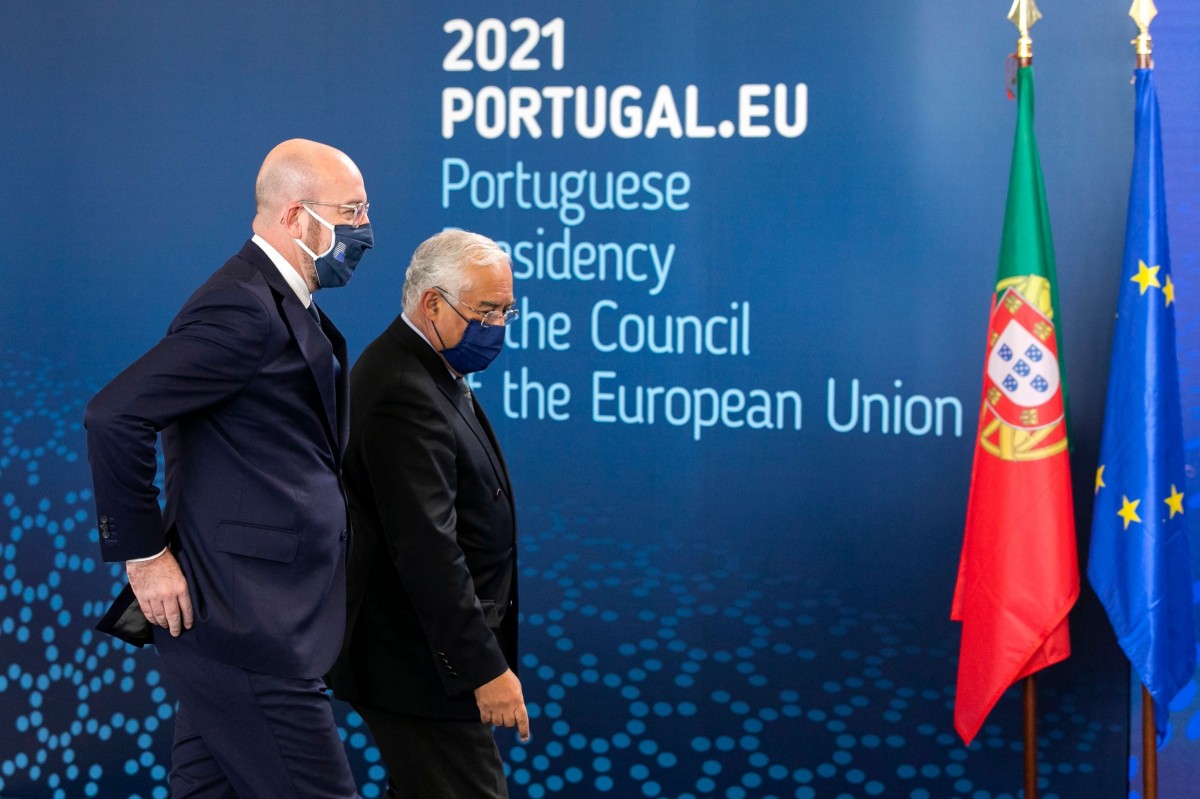Portugal’s Priorities As It Takes Over The EU Presidency
How to measure Portugal's success as it takes over the rotating presidency of the EU Council? As it looks to make progress on a long list of issues, it will surely not least be judged on the efficient rollout of the vaccination programmes and the deployment of recovery funds.

A long wishlist
On January 1st, Portugal took over the six-months rotating presidency of the EU Council. To guarantee more continuity and to allow for more time to consider further complex policy issues, three countries always team up as a trio. Portugal follows on from Germany before Slovenia takes over in the summer. The role of the president of the Council is to bring the viewpoints of the member states closer together and to look for a compromise.
The challenges for the European Union are numerous, and so is the list of topics where Portugal wants to make progress in the next six months. Portugal wants to focus on social issues, such as the European immigration system and the fight against terrorism and hate speech. There is also a long list of issues relating to the promotion of the digital and green transition. The agenda also cites revitalizing the relationship between the US and the European Union. The recent EU investment treaty with China, however, might cause tensions with the new Biden administration. They also want to pay particular attention to the relations with India. The complete list of their priorities can be found here.
The recovery fund
The implementation of the longer-term EU budget (also known as the multiannual financial framework)) and the European Recovery Fund (as part of the official Next Generation EU plan) will be crucial as far as an economic policy which has a direct short-term impact on growth is concerned. Augusto Santos Silva, the Portuguese foreign minister, said recently that the last six months were a period of big strategic decisions and that it is now Portugal’s responsibility ‘to put those decisions into practice and produce results”.
After the provisional agreement on the European Recovery Fund (the Recovery and Resilience Facility) in December, the European Parliament still needs to vote on the issue. After that, the Council can formally adopt it. What's happening there will be discussed in the next Ecofin meeting on January 19th.
In order to get the European money, member states should stipulate how they will spend it. Some countries have already published their plans, such as Portugal and Spain. The deadline for submitting these national plans is April 30th.
We expect that the European Recovery Fund will stimulate economic growth in the second half of the year by increasing public investment. It's still unclear whether private companies will enthusiastically join the investment boom as many will also want to rebuild their financial positions.
Current affairs will probably interrupt
On top of all that, the world's focus is on the coronavirus crisis which continues to cloud the European agenda. The slower rollout of the European vaccination programmes compared to the UK and the US is already such an example. The Portuguese government already announced that vaccination programmes are one of the main priorities of its presidency.
A proposal on a vaccination certificate by the Greek prime minister, Kyriakos Mitsotakis, for example, could be discussed in the Council. Such a certificate would prove whether somebody is vaccinated and could lead to re-establishment of freedom of movement, within member states and third countries. Such a certificate would be useful and support the tourism sector. Given the difficulties in recent weeks regarding procuring vaccines, however, it is likely that member states will discard a European initiative for additional purchases and go for a national one instead. Balancing between European and national interests will be one of the main challenges for the Portuguese Council presidency.
In our view and in order to boost the eurozone recovery, the two most important policy issues for the Portuguese presidency are an efficient rollout of the vaccination programme, together with a full implementation of the European Recovery Fund. The success of this presidency will, in our view, not be defined by the entire list of original topics but by these two issues alone.
Disclaimer: This publication has been prepared by ING solely for information purposes irrespective of a particular user's means, financial situation or investment objectives. The information ...
more


